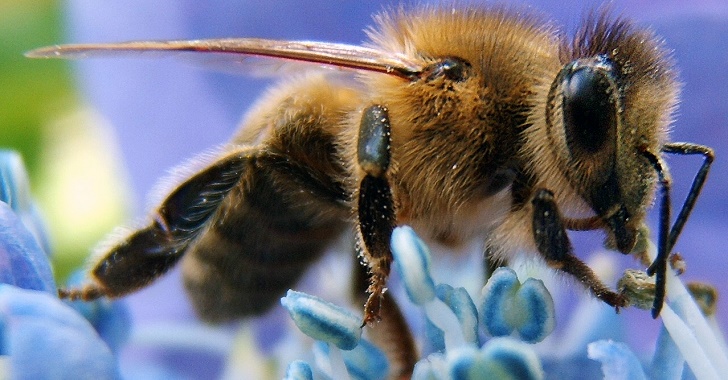57 Reasons Honeybees are in Decline
Polish scientists seeking to help save pollinators developed a method for testing the presence of pesticides in honeybees — and what they found should be a call to action.
Scientists with the National Veterinary Research Institute in Poland, who were analyzing the presence of various pesticides in fruit, vegetables, and cereals, realized the method could be employed for testing bees. In those contaminated insects, they discovered the presence of 57 different pesticides.
“Even at very low levels, pesticides can weaken bees’ defense systems, allowing parasites or viruses to kill the colony,” explained study lead author, Tomasz Kiljanek, as Inhabitant reported. “Our results will help expand our knowledge about the influence of pesticides on honeybee health, and will provide important information for other researchers to better assess the risk connected with the mix of current used pesticides.”
Widget not in any sidebars
Though neonicotinoids are the frequent target in the decline of pollinators, it turns out they might not be the only pesticide worthy of blame.
Conducting their tests in Europe, the scientists developed a method to detect the presence of 200 pesticides simultaneously — 98 percent of which are currently permitted by the E.U., which has already banned neonicotinoids for their devastating potential contribution to honeybee decline.
“Bee health is a matter of public concern,” Kiljanek said. “Bees are considered critically important for the environment and agriculture by pollinating more than 80% of crops and wild plants in Europe. We wanted to develop a test for a large number of pesticides currently approved for use in the European Union to see what is poisoning the bees.”
As Phys.org pointed out, with so many pesticides currently on the market, it’s difficult to discern which individual chemicals — and which pesticide combinations — are actually causing harm to the bees.
Study scientists investigated 70 incidents of honeybee poisoning to try to understand the complex toxicities that might be at fault.
“This is just the beginning of our research on the impact of pesticides on honeybee health,” Kiljanek noted.
Vital pollinators are declining in rapid numbers, and recent reports suggest the government may be all too eager to defend pesticide manufacturers to the detriment of bees — which ultimately also threatens the global food supply.
Solutions are imperative, and range from individuals becoming beekeepers — as Morgan Freeman and other celebrities have done — to the construction of the world’s first ‘bumblebee highway’ in Oslo, Norway.
Though the scientists’ findings are alarming, they mark a significant step toward unraveling the massive decline in pollinator populations around the world.
This article (57 Reasons Honey Bees are in Decline) is free and open source. You have permission to republish this article under a Creative Commons license with attribution to Claire Bernish and theAntiMedia.org. Anti-Media Radio airs weeknights at 11pm Eastern/8pm Pacific. If you spot a typo, email [email protected].


